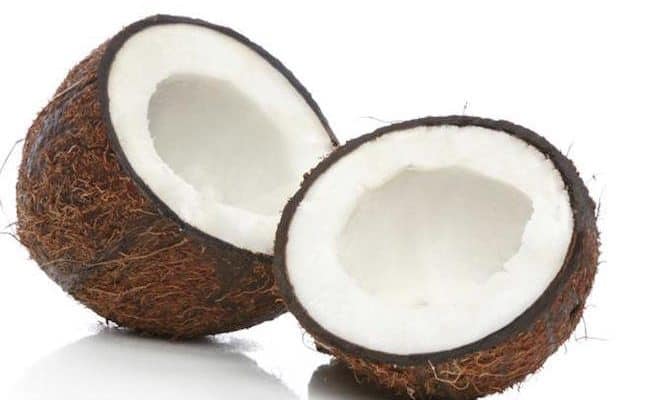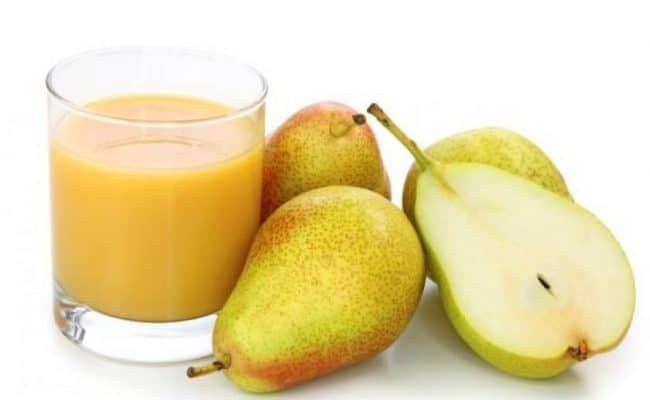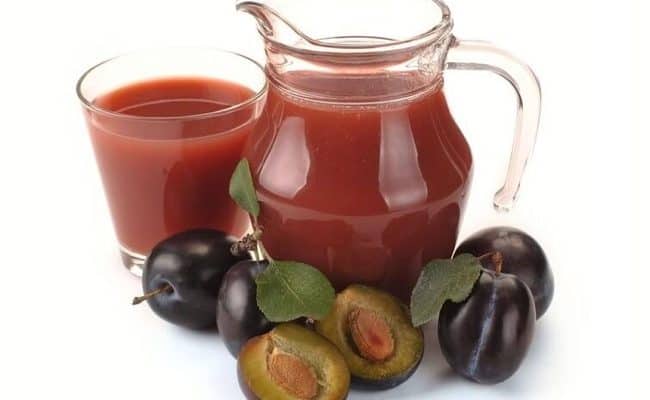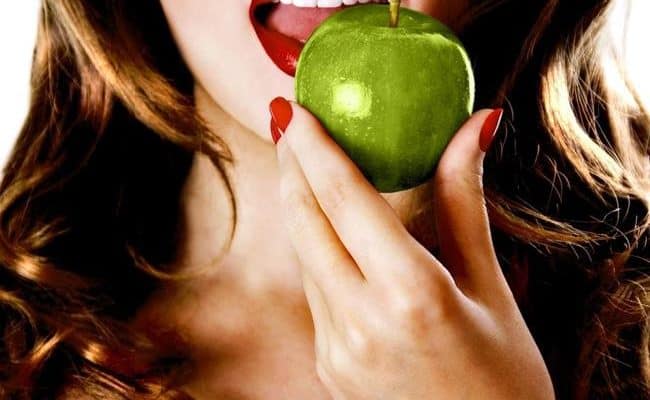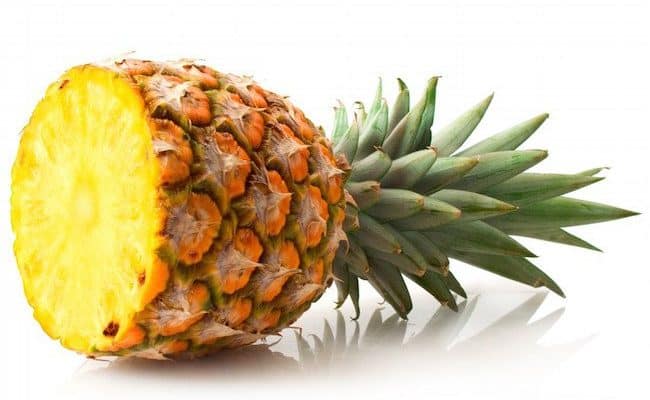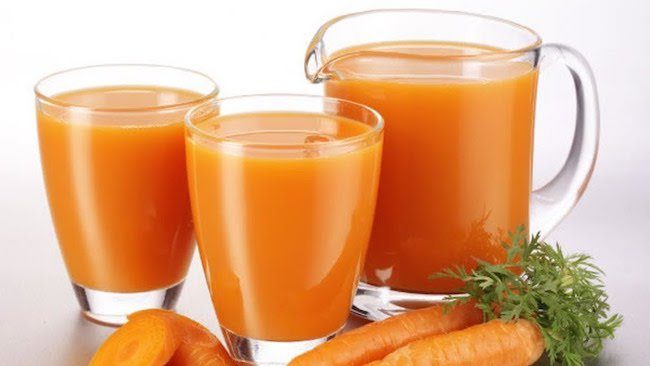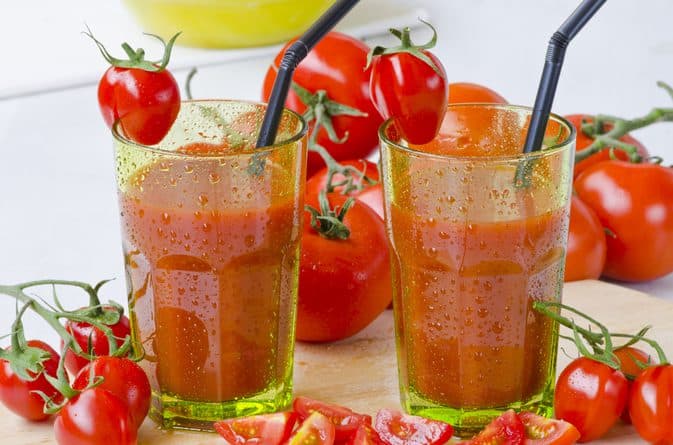
Most people probably recognize the importance of getting enough vegetables in their diet because vegetables are high in fiber, vitamins, minerals and antioxidants.
Women 19-50 years old should get 2.5 cups of vegetables per day, and men 19-50 years old should get 3 cups of vegetables per day.
However, data from the CDC (1) found almost 9 out of 10 Americans don’t get the recommended daily vegetable servings. Most people can benefit from adding in more vegetables into their diet of any kind.
Drinking 100% vegetable juice can count towards your recommended vegetable intake.
A cup of vegetable juice can be counted as a cup of vegetable serving for the day.
Adding in a liquid, premade vegetable juice, like V8, can be an easy way to add in more vegetable servings to your diet.
V8 juice is a source of antioxidant lycopene, vitamin A, vitamin C and potassium. Another benefit of pure vegetable juice is it is low in calories and sugar.
A down side with V8 or other pre-made vegetable drinks is they can be high in sodium. Choosing low sodium V8 can be a healthier choice because it is lower in sodium.
Benefits of V8 Juice
A can of Campbell’s V8 juice (1) only provides 30 calories with 0 grams of fat, 7 grams of carbohydrates and 2 grams of protein.
Drinking a cup of V8 juice per day can add a cup of vegetable serving for the day. A can of V8 provides 25% DV vitamin A and 80% DV vitamin C.
Drinking V8 or other tomato juice can provide an antioxidant source that can help lower oxidative stress.
A 2015 study (2) divided overweight or obese female study participants into 2 groups for 20 days.
One group received 330 mL of tomato juice per day while the other group received only water.
At the end of the 20 days, the tomato juice group showed reduced signs of oxidative stress compared to the water group.
Another 2015 study (3) analyzed the effect daily tomato juice (280 mL) had on women. For 2 months, study participants consumed tomato juice everyday in addition to their normal diet and exercise routine.
Researchers found at the end of the study the tomato juice supplementation reduced waist circumference, lowered blood cholesterol levels and also lowered certain inflammatory markers in the blood.
These studies suggest drinking V8 or other tomato juice products may have beneficial effects in the body because tomato juice is a good source of antioxidants and low in calories.
Cons of V8 Juice
According Dr. Katz in a 2015 TIME article (4), an 8 ounce serving of tomato juice can have up to 670 mg of sodium which is about the same as 4 small bags of chips.
Most Americans already get too much sodium in their diet. Excess sodium may increase risk for high blood pressure. Therefore, choosing low sodium V8 or other vegetable juice is an important consideration.
One thing to note for vegetable juice is vegetable juice is lower in fiber than eating the actual vegetables. Because of this, drinking vegetable juice isn’t as filling as eating vegetables.
Juice isn’t a replacement for eating vegetables
While drinking V8 or other tomato juice can be a good source of nutrients, it is not considered a superior choice above eating vegetables.
In fact, Center for Science in the Public Interest (5) lists vegetable juice as one of their top overrated foods.
The reason why is when the marketing stripped away and you are just looking at the ingredient label, V8 is basically watered down tomato sauce.
Mayo Clinic (6) also suggests drinking V8 isn’t a replacement for eating more vegetables in your diet. Drinking low sodium vegetable juice can be added to your diet, but still eating more whole vegetables should be done too.
Since most Americans don’t get the recommended vegetable (or fruit) servings per day, it makes sense most Americans also do not get the recommended fiber amount per day.
Drinking more vegetable juice won’t add much to fiber intake. Eating whole vegetables will.
Drinking V8 in place of other drinks, like soda or other sweetened beverages, can be a healthy switch. Drinking more V8 in place of eating whole vegetables isn’t recommended.
Making your own vegetable juice
Buying pre-packaged vegetable juice can be expensive compared to buying whole vegetables. If you want to incorporate vegetable juice into your diet inexpensively, you could make your own “V8” type of juice.
By making your own you can also add in other vegetables like leafy greens, carrots, celery, etc.
Thekitchn.com (7) suggests simmering or sauteing vegetables at home before blending them up to give a better flavor.
If you have a blender or food processor, you can make your own vegetable juice with whatever vegetables you want. Adding in fresh herbs can also put a fresh spin on making your own vegetable juice.
Conclusion: Is V8 juice good for you?
The bottom line is V8 juice can be good for you. Choosing a low sodium option is best for health because some tomato juice products can be quite high in sodium.
Most Americans already get too much sodium in their diet which may increase risk for high blood pressure.
Tomato juices like V8 are low in calories, relatively low in sugar and a good source of antioxidants and a source of potassium.
Some studies have shown drinking tomato juice everyday has been shown to help lower certain inflammtory markers in the blood, oxidative stress and may even help with lowering blood cholesterol or waist circumference.
Adding V8 to your diet shouldn’t replace whole vegetables in your diet. Vegetables are higher in fiber compared to vegetable juices.
Adding V8 or drinking it in place of other beverages can be healthy, but V8 should not be used in place of whole vegetables in the diet.
Buying V8 or other pre-packaged vegetable juices can be costly. As an alternative, you can make your own V8 type of drink with your own vegetables.
